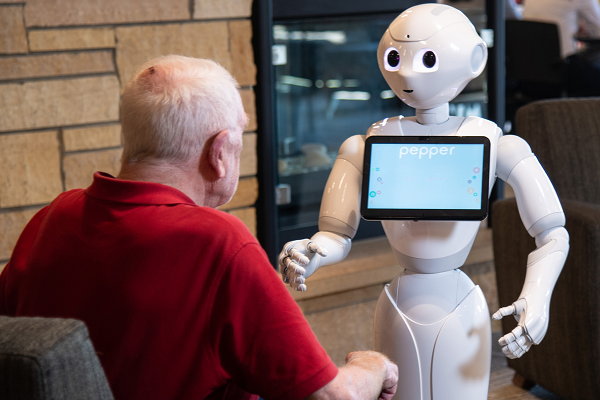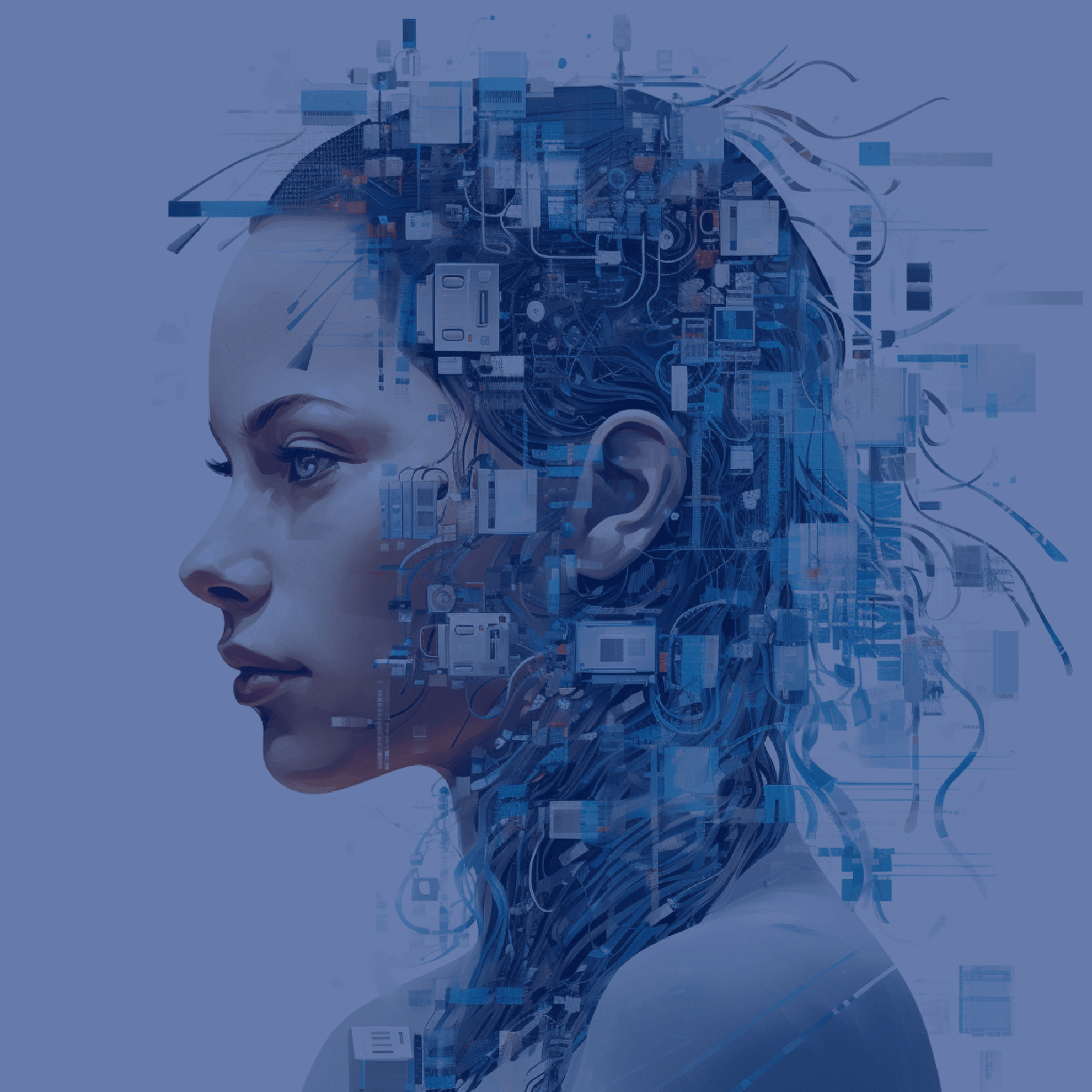With the rising global population of older adults, the need for innovative technologies to support senior independence has never been more urgent. Modern advancements such as generative AI and wearable technology are opening avenues for seniors to lead autonomous and fulfilling lives.
Generative AI: An Innovative Leap Forward
Artificial Intelligence (AI), particularly its generative subset, is radically transforming eldercare, potentially contributing up to $4.4 trillion in economic value. Generative AI, renowned for its role in natural language processing, is pioneering bespoke solutions for seniors, enabling a shift towards more human-like interactions.
For example, AI chatbots, capable of generating human-like text, are enhancing companionship for seniors, effectively mitigating feelings of isolation and loneliness. This technology is vital as it opens up new avenues for interaction and engagement for our older population.
Imagine an AI system capable of anticipating a senior's needs, drawing from their behavior patterns, and delivering tailor-made support. This not only improves safety measures for seniors but also makes aging in place a viable, comfortable option. Such advancements affirm the profound potential generative AI holds for the future of eldercare.
Wearable Technology: A Personal Health Guardian
Wearable technology is revolutionizing health management for seniors. Wearables such as smartwatches, fitness trackers, and biosensor devices provide real-time health monitoring, enabling early detection of potential health issues.
From tracking heart rate and sleep patterns to monitoring physical activity levels and fall detection, these devices offer a holistic view of seniors' health status. By alerting caregivers or healthcare providers to any abnormal readings, wearables can expedite timely medical interventions, contributing to improved health outcomes.
Value-Based Care: Prioritizing Outcomes
Value-based care is a healthcare model where providers are rewarded based on patient health outcomes. It prioritizes the quality of care over quantity, shifting the focus from 'how much' to 'how well.'
Implementing value-based care models in senior care can lead to personalized and efficient care delivery. By harnessing technology and data analytics, providers can better understand each senior's unique health needs and tailor their services accordingly. This results in improved health outcomes, reduced hospital readmissions, and enhanced patient satisfaction.
Innovative Assistive Technologies

The advancement of modern assistive technologies has greatly contributed to improving the quality of life for seniors, facilitating independence, and ensuring a safe living environment. Let's look at these technologies closer.
AI-Powered Assistive Robots
AI-powered assistive robots are making significant strides in aiding seniors with daily tasks, and enhancing their autonomy and well-being.
- Meal Preparation: Robots with AI capabilities can assist in preparing meals by following recipes, chopping ingredients, and even serving food. The University of Cambridge is in the process of bringing a revolutionary robot chef to life. This robot could potentially be capable of semi-automated or fully automated meal preparation, even being able to tell what tastes good and what does not, thus enhancing their cooking abilities.
- Medication Reminders: Assistive robots can provide timely reminders for medication, ensuring adherence to prescribed schedules. The Mabu robot is a well-documented example, engaging with patients one-on-one and reminding them of their medications, all while relaying important information to healthcare providers.
- Emotional Companionship: Beyond physical assistance, robots like PARO have been designed to provide emotional companionship, showing promising results in reducing anxiety and loneliness in seniors.
Smart Home Systems
Smart home technologies are playing an essential role in automating household functions, thereby ensuring a safe and comfortable environment for seniors.
- Lighting Control: Systems that automate lighting can adapt to the natural circadian rhythm, aiding sleep and overall well-being. Philips Hue has been at the forefront of this technology.
- Temperature and Climate Control: Smart thermostats enable precise control over the home's temperature, catering to seniors' specific needs. Research like this study by AARP discusses the advantages.
- Security Systems: With features like automated locks and surveillance, smart security systems ensure safety without compromising independence. Products such as Ring Alarm are popular choices for this purpose.
Virtual Reality and Augmented Reality for Therapy
Both virtual reality (VR) and augmented reality (AR) have emerged as powerful tools in physical and cognitive therapy, specifically targeting challenges faced by seniors.
- Physical Therapy: VR-based exercise programs have been shown to improve balance and mobility, reducing the risk of falls. A recent study has found that VR-based exercise therapy has been more commonly considered for the improvement of pain (41%), functional ability (31%), and muscular strength (24%).
- Cognitive Therapy: AR and VR can be used to stimulate cognitive functions, assisting in memory recall and other mental exercises. The Virtual Reality Medical Center is utilizing these technologies to create targeted cognitive therapy interventions.
Conclusion
As the aging global population meets rapid technological advancement, the opportunity to enhance seniors' independence and quality of life is immense. Innovations in AI, wearable technology, and value-based care are already making a difference in making aging in place a reality.





.png)